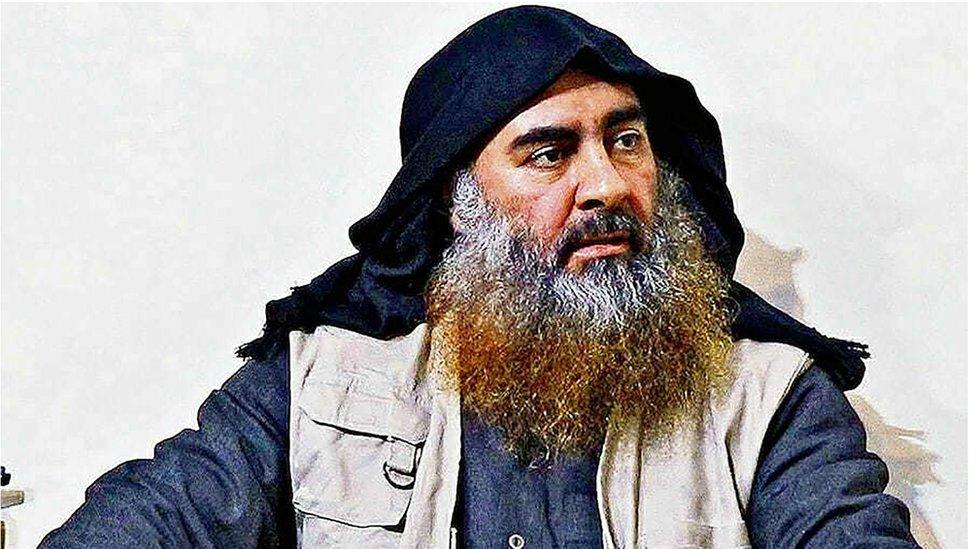Abu Bakr al-Baghdadi: Turkey 'detains dead IS leader's wife'
- Published
Abu Bakr al-Baghdadi killed himself during a raid by US commandos
Turkey has captured a wife of former Islamic State (IS) group leader Abu Bakr al-Baghdadi, President Recep Tayyip Erdogan says.
On Tuesday Turkey said it had detained Baghdadi's sister in Syria.
Baghdadi killed himself during a raid by US special forces on his compound in north-west Syria last month.
His death was hailed as a victory for US President Donald Trump, but critics argue that IS remains a security threat in Syria and elsewhere.
Last week the jihadist group confirmed Baghdadi's death and named a new leader.
What did Erdogan say?
Speaking in the Turkish capital Ankara, Mr Erdogan said he was revealing the capture of Baghdadi's wife for the first time and also said Turkey was holding the dead IS leader's brother-in-law.
"The United States said Baghdadi killed himself in a tunnel. They started a communication campaign about this," Mr Erdogan said, referring to details of the raid made public by US officials.
"But, I am announcing it here for the first time: we captured his wife and didn't make a fuss like them. Similarly, we also captured his sister and brother-in-law in Syria."
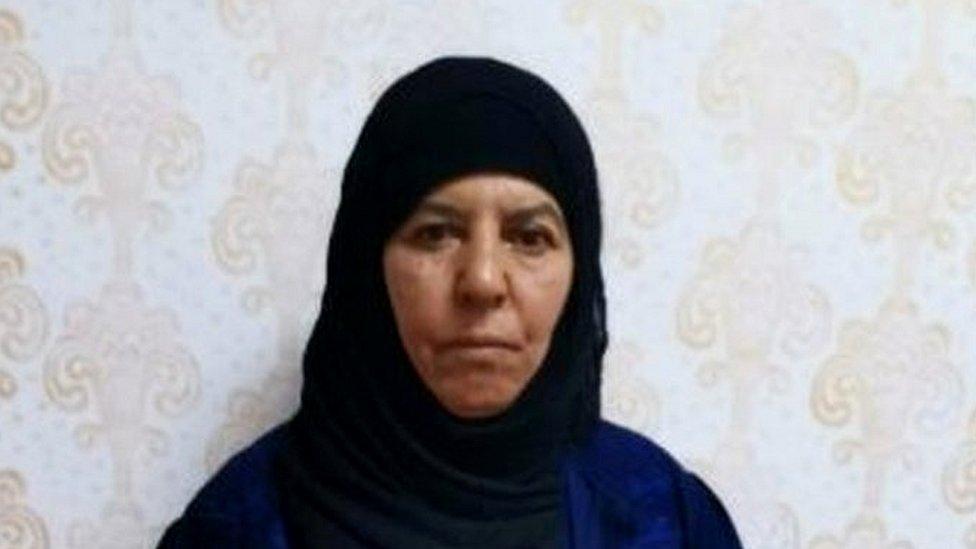
Rasmiya Awad is believed to be one of the sisters of the ex-IS leader
On Tuesday Turkish officials said the arrest of Baghdadi's sister Rasmiya Awad would yield valuable intelligence about IS.
The arrest was reportedly made on Monday in an area of Aleppo province now under Turkey's control.
Ms Awad was found in a trailer, where she was living with her husband, daughter-in-law and five children, a Turkish official told AP news agency, adding she was being interrogated on suspicion of involvement with an extremist group.
Experts say the town where Ms Awad was captured is a known smuggling route for IS families.
What happened to Baghdadi?
President Trump announced his death at a press conference at the White House on 27 October.
Baghdadi detonated his suicide vest after fleeing into a tunnel during a US raid on his hideout in Idlib province, Mr Trump said.
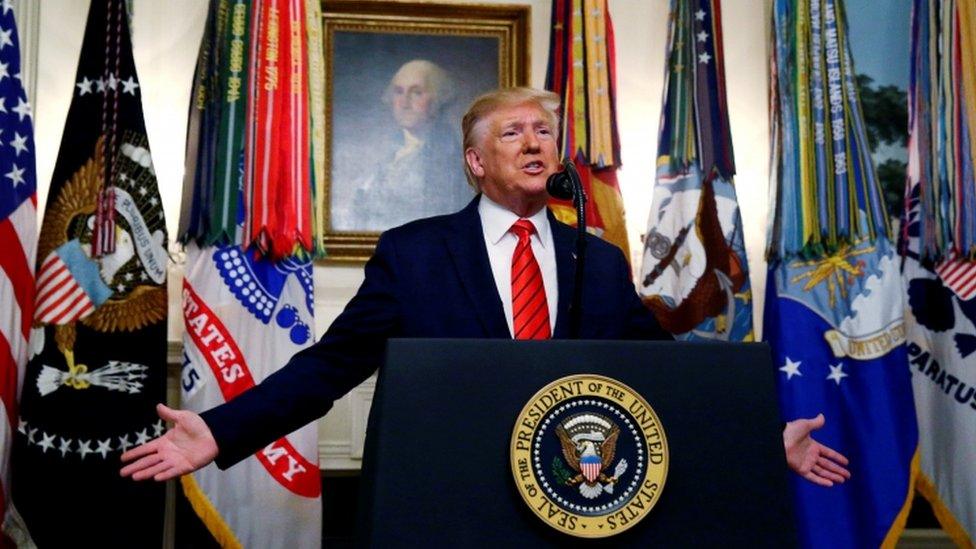
US President Donald Trump announced the death of Baghdadi at an extraordinary press conference
Grainy footage of the raid released by the US military shows helicopters firing at gunmen on the ground as they fly towards a compound where Baghdadi is hiding.
On landing, US special forces commandos blew holes in the walls of the compound and called on Baghdadi to surrender, the military said. But he fled into a tunnel and detonated a suicide vest, killing himself and two children he had taken with him.
The grainy footage shows troops closing in on the compound - and later an explosion destroying it
Mr Trump said DNA tests had been carried out to verify Baghdadi's identity, confirming his death.
After the raid, the compound was destroyed in an air strike.
Abu Ibrahim al-Hashemi al-Qurashi has since been named as IS' new leader and "caliph".
How did he spend his last weeks?
According to his associates, he spent them trying to find safety in an increasingly shrinking area in eastern Syria, external, as territory held by IS began falling, AP reports.
For months, he kept a Yazidi teenage girl as a sex slave, taking her with him as he travelled with a core group of up to seven close associates.
At one point, they moved to Dashisha, a border town in Syria within IS-held territory. The teenager stayed for four months at the home of Baghdadi's father-in-law, where Baghdadi would visit her frequently and rape her, the teen told AP.
He would only move at night, wearing trainers and covering his face, always with around five security men, she said.
During that period, he was a "nervous wreck", fearful of treason and infiltrations among the governors of the group's self-declared provinces, his brother-in-law, Mohamad Ali Sajit, told al-Arabiya TV last week.
He sometimes dressed as a shepherd, and walked around with a suicide belt, even slept with one near him, and made his aides also carry belts; he never used a mobile phone, but his close aide did, Mr Sajit said.
The stress aggravated the IS leader's diabetes, and he had to constantly monitor his blood sugar and take insulin.
In the end, he left former IS areas completely, slipping into the north-western province of Idlib, held by Hayat Tahrir al-Sham, a militant group linked to al-Qaeda and an IS rival. He chose that location because it was the last territory outside of Syrian government control, US officials said.
- Published28 October 2019
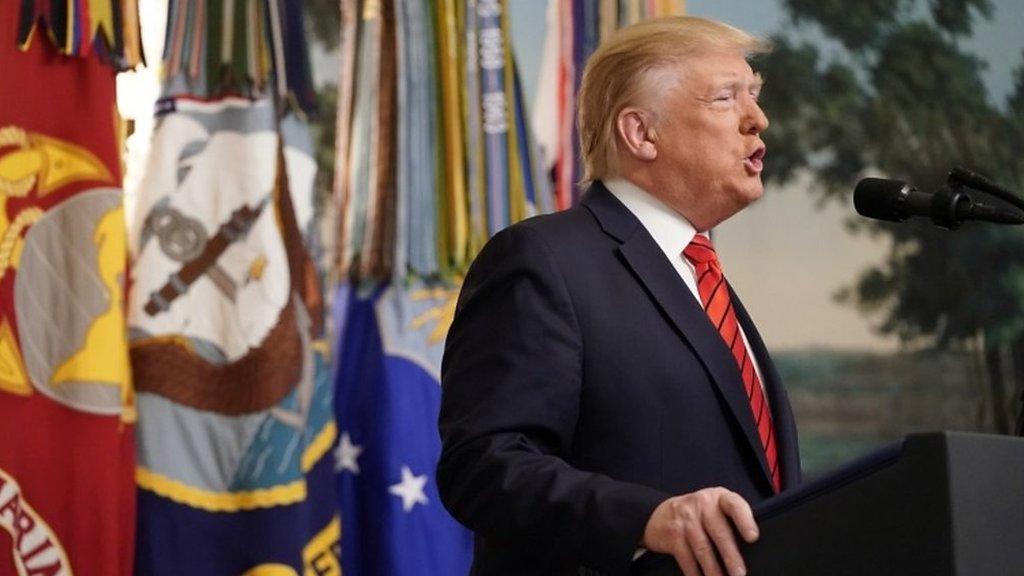
- Published29 October 2019
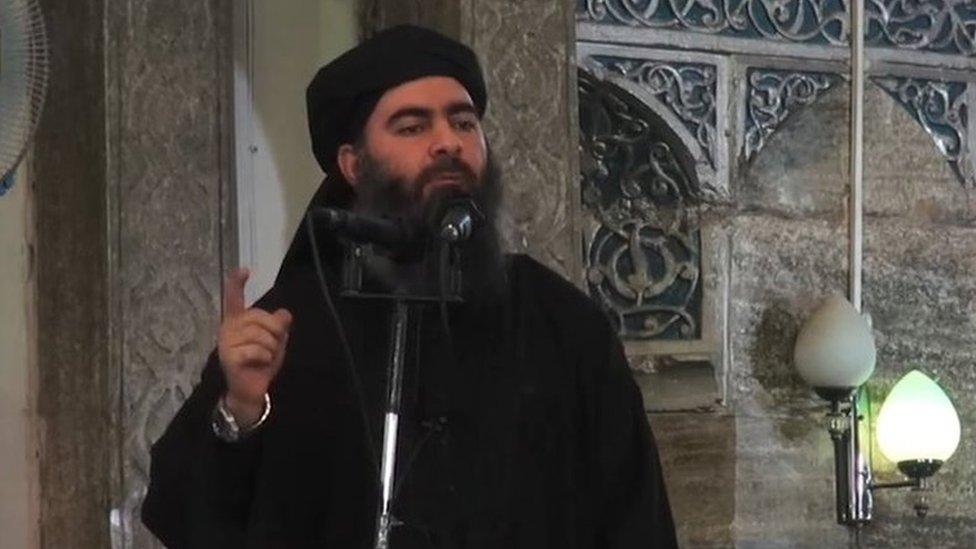
- Published31 October 2019
